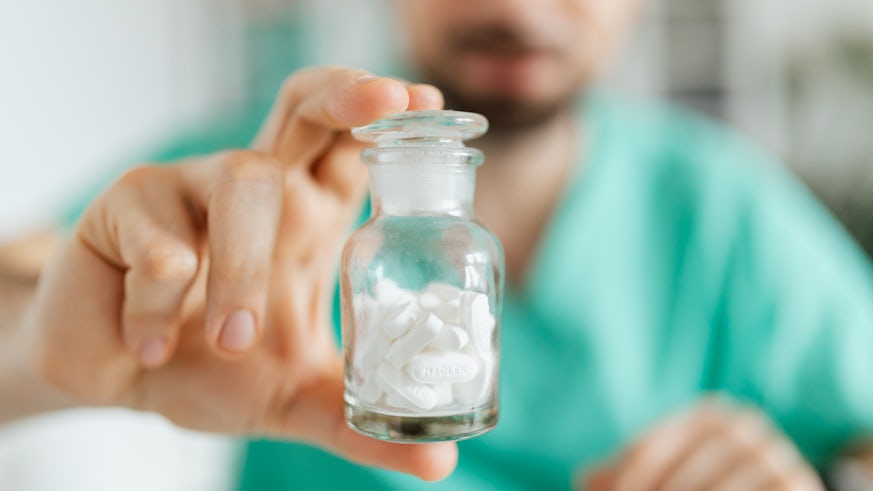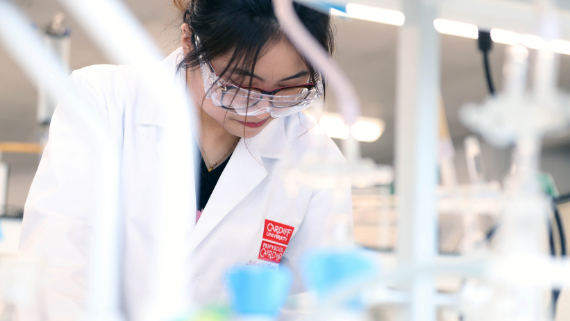Exciting breakthrough could reduce both cost and toxicity of making medicines
23 July 2020

A research team at Cardiff have unearthed a way to use non-metal catalysts, which they say could potentially make pharmaceutical drugs both more affordable and safer.
The field of Catalysis plays a fundamental role in the quality of our everyday lives.
Through lowering the energy barrier of chemical processes, catalysts can reduce energy consumption, making chemical processes more efficient. Therefore, it’s vital that new catalysts are developed, and existing ones improved, as this has a direct influence on many major societal issues of today.
Historically, transition metals have dominated these processes, owing to their rich reaction chemistry. However, many catalysts comprise of precious metals (such as rhodium). And the issue arises when we understand that precious metals are expensive and often toxic.
Of course, toxicity is a huge concern for consumer products, such as pharmaceutical drugs, taken into the body and used to treat sick patients.
Despite this, many current methods of creating drugs still utilise these rhodium catalyst reactions.
Researchers at Cardiff have found that such problems can be avoided through metal-free approaches. They were able to use non-metal catalysts, based on the element boron, to create a range of highly selective reactions.
It was shown that boron-based catalysts may be superior to rhodium catalysts, by demonstrating improved selectivity and reducing the number of synthetic steps in chemical transformations.
The research was EPSRC funded within the Melen Group in the Cardiff Catalysis Institute, and has been reported in two key publications, Angewandte Chemie and CHEM.
The team included one PDRA, Ayan Dasgupta, two Cardiff PhD students, Kate Stefkova and Lukas Gierlichs, and worked in collaboration with the University of Tasmania.
The team have succeeded in demonstrating that a simple, effective procedure can be followed in the absence of a metal catalyst, paving the way for future applications in the generation of biologically active compounds.
Share this story
Full details of our BSc and MChem courses, including how to apply.
